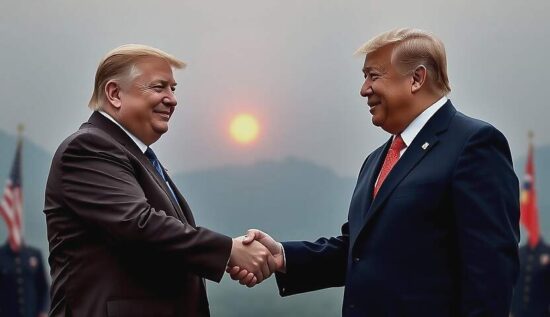The newly designated US President, Donald Trump, is planning to visit China within the first 100 days of his new term to improve relations with Xi Jinping, according to a report by the Wall Street Journal, citing sources. The trip is intended to strengthen ties with the Chinese state leader in the face of growing geopolitical tensions between the two nations, fueled by the dispute over Taiwan and Trump’s threats to impose tariffs on Chinese imports. Sources familiar with the matter told the newspaper that while Trump has expressed a certain interest in the trip, a final decision has not yet been made.
Trump and Xi had a phone call on Friday to discuss a range of topics, including trade issues, the situation regarding Taiwan, and the situation of the Chinese-owned social media platform TikTok, which went off the grid in the US due to a potential ban. It is unclear, however, whether the designated president brought up the idea of a China visit during the conversation. According to the Wall Street Journal, the two leaders left the discussion of a possible personal meeting to their advisors.
In addition to China, Trump has also expressed interest in a possible trip to India, sources of the newspaper said. His immediate attention, however, is focused on domestic issues, including the border crisis and the wildfires in California.
During his first term, Trump visited Beijing in late 2017, more than nine months after taking office. The four years of the Trump administration were marked by a tense trade dispute with China, in which the designated president imposed tariffs on Chinese goods in the tens of billions of dollars. His administration also labeled China a “currency manipulator” and imposed strict restrictions on Chinese technology giants like Huawei and ZTE, citing national security concerns.
During the election campaign, Trump proposed tariffs of 60% on Chinese imports. In response to the possibility of an increase, the Chinese Vice Commerce Minister, Wang Shouwen, warned that the restrictions would backfire and force American consumers to pay higher prices. In the meantime, he added, China would be able to withstand the impact of such “external shocks”.





